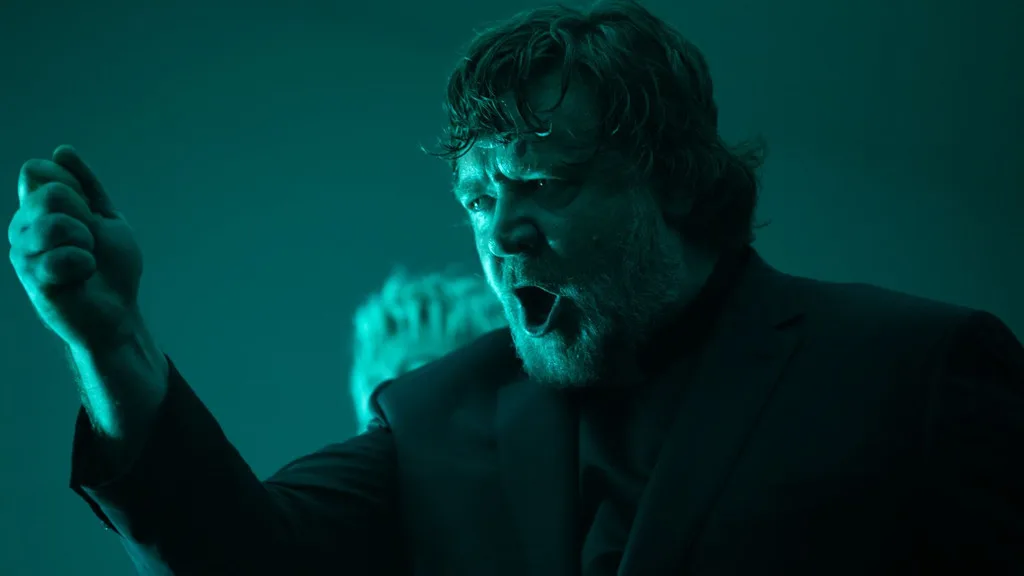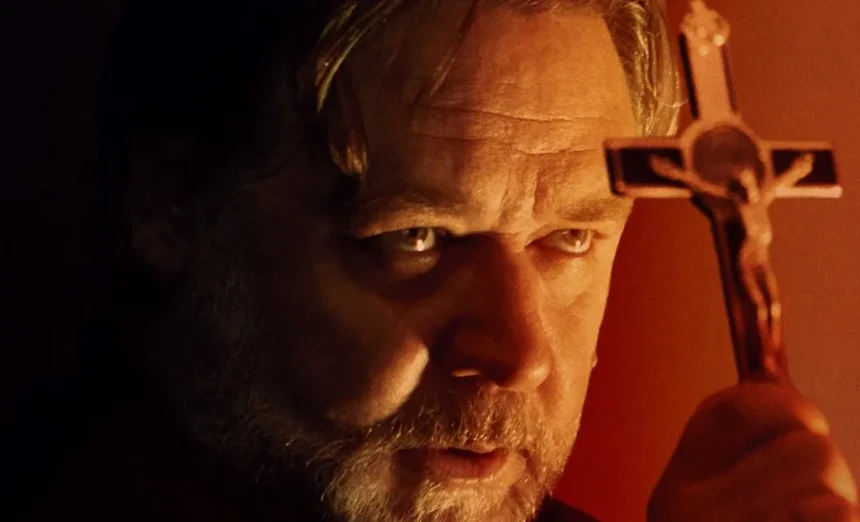Russell Crowe, once an A-list actor known for prestigious roles, has found himself in a new phase of his career, starring in lower-budget films like “Unhinged” and “The Pope’s Exorcist.” Despite these ventures into B-movies, “The Pope’s Exorcist” surprisingly became a hit, even spawning a sequel.
This success led to the revival of another exorcism-themed project, “The Exorcism,” originally shelved due to production setbacks exacerbated by the COVID-19 pandemic. Directed by Joshua John Miller, it blends elements of horror with meta-fiction, drawing inspiration from Miller’s personal connection to the legacy of “The Exorcist.”
Originally titled “The Georgetown Project,” the film struggled with reshoots and studio hesitancy until recent developments spurred its release. The narrative centers on Tony (played by Crowe), a troubled actor grappling with personal demons during the filming of a cursed production.
The story cleverly explores the intersection of real-life horrors and supernatural occurrences on a movie set, a theme rarely tackled in horror cinema. The initial setup promises intrigue with Tony’s complex backstory and the eerie events unfolding around him.

Despite a promising premise, “The Exorcism” fails to maintain its early momentum. Critics highlight pacing issues and a descent into conventional horror tropes that overshadow the film’s more nuanced beginnings.
Crowe’s committed performance as Tony, haunted by past trauma and addiction, is undercut by the script’s shift towards predictable scares and superficial character development. The film’s narrative struggles to sustain interest, leaving viewers more puzzled than engaged as it hurtles toward a chaotic and unsatisfying conclusion.
Director Joshua John Miller’s craftsmanship is evident in the film’s visuals and atmosphere, maintaining a polished look suitable for the big screen despite its narrative shortcomings. Yet, the film ultimately succumbs to its own ambitions, failing to deliver a cohesive and compelling exploration of its thematic potential.
It becomes clear that despite its troubled production history, “The Exorcism” falls short of its intended impact, ending up as a forgettable entry in the horror genre rather than the profound statement it aspired to be.
In conclusion, while “The Exorcism” initially promises a fresh take on horror filmmaking with its meta-horror elements and Russell Crowe’s dedicated performance, it ultimately disappoints with its mishandled execution and formulaic scares.
Its journey from troubled production to theatrical release mirrors its protagonist’s descent into chaos, but unlike Tony’s story, the film struggles to find redemption or coherence in its narrative. Thus, despite its intriguing premise and occasional flashes of potential, “The Exorcism” fails to rise above its cursed production history, becoming a footnote rather than a standout in the genre.







